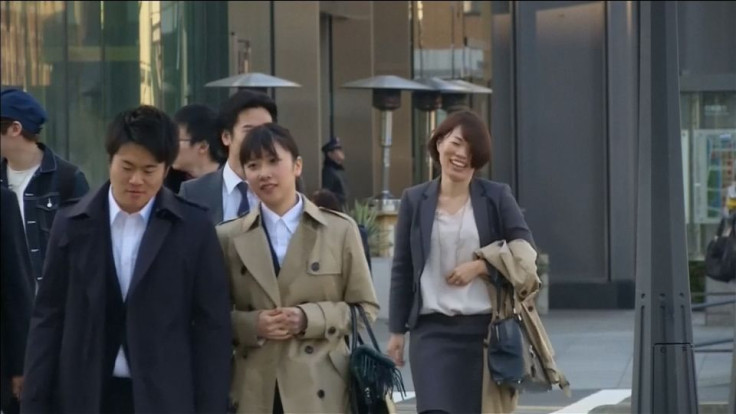#KuToo: How Japanese Women Are Fighting Back Against High Heels And Gender Discrimination

Japanese women are standing up to workplace high heel requirements online, as they feel it is a symbol of gender discrimination in modern Japanese society.
The women have been tweeting online with the hashtag #KuToo which is play on "kustu" the word in Japanese for shoes and "kutsuu" the word for pain. The hashtag #KuToo could also be a reference to the #MeToo movement in the United States, where women in the media and film exposed gender discrimination and sexual harassment from their colleagues.
The hashtag was coined by Japanese writer and feminist Yumi Ishikawa who started a petition urging Japanese workplaces to ban high heel requirements at work. So far, over 19,000 people have signed the petition as of Monday, CNN reported.
"I'm hoping to get rid of the custom that someday women have to wear heels and pumps at work," she tweeted.
There have been similar sexist tropes that have spread in Japanese society. The Guardian reported that a Japanese Member of Parliament said women should have multiple children and if they fail to do so, they would they would be a burden on the Japanese government later in life.
A similar campaign was launched in 2016 in the United Kingdom, where 150,000 people signed a petition called for a ban on high heels requirements at British workplaces, yet the British government did not change the law.
Japan lags behind most other developed nations in regards to gender equality. A 2015 report from the Organization for Economic Cooperation and Development (OECD) revealed that the country has the third highest gender pay gap in the OECD and only 2.1% of Japanese women sit on the board of directors of Japanese companies. This is despite the fact that more Japanese women graduate from university than men in the country. Japanese President Shinzo Abe has pledged to correct gender equality in Japanese society and empower working women.
© Copyright IBTimes 2024. All rights reserved.





















